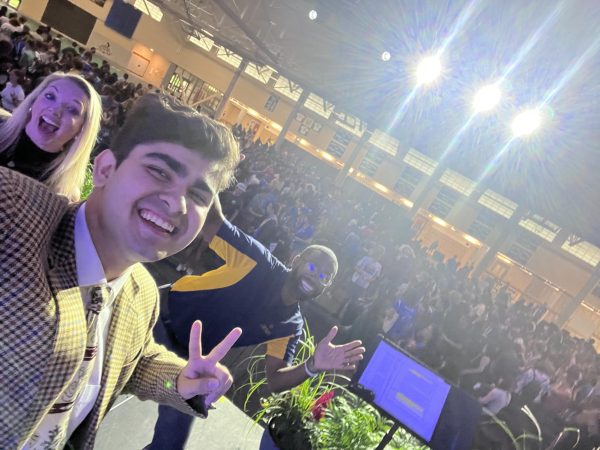Nobody reads the Carletonian. It’s something that is often joked about in the weekly pitch meetings and editorial meetings. It sometimes feels like a half-joke, since we put all this effort into slapping together enough words to create our weekly publication without really seeing what the reaction to any of it is. We work for the week, toss our newspapers in Sayles and generally that’s about it. Or is it?
I’ve written for the Carletonian basically since I got here in the fall. My first article is dated October 6, 2022. Having been a staff writer through Fall and Winter Terms, when I was offered the position as Viewpoint Editor and realized it only meant one extra meeting a week, I accepted, thinking that it wouldn’t really change all that much. All that should change is that I now get random emails about people’s opinions and just forward them to whoever actually does all the editing, right?
It turns out that it is a substantial amount of work to keep a weekly newspaper running, gathering enough content to fill all the pages, filling in where there isn’t enough, formatting and making sure everything is (mostly) up to snuff. Discussing which section submissions fall into, answering emails from curious people and hoping they’ll write something, and ultimately having to push out an article from nothing the day before editing starts is a weekly process I don’t see ceasing anytime soon unless a lot more people suddenly find the requisite time and awareness to form their opinions into printable articles.
But that’s not the point. I sometimes wonder, just to myself, if there is ultimately a reason to keep writing for this paper. I’ve shopped around the various publications on campus. I’ve written for the Clap, posting whatever random thoughts and crude jokes that stir around in my mind. I’ve written for Babyteeth this term. Submitting a poem and some art and seeing it displayed alongside the other creative minds on campus was satisfying in its own way. But why write for the Carletonian? It is a lot of energy in ways you wouldn’t expect. The weight of keeping your ears and eyes open to all the news and happenings on campus and trying to keep in touch with my own emotions and lived experiences to externalize even a small part of the swirling vortex I have in place of a mind is an exhausting task in and of itself. Going to an editors’ meeting and realizing that I have to write a whole thousand words by the time I go to sleep that night when I have to work on final projects is a weekly burden that becomes more and more difficult to shoulder as time passes.
Nobody reads the Carletonian. That’s what I thought. It seemed incomprehensible to me that in the short time and limited energy even the most youthful of us have, people would put in the effort to pick up a physical newspaper and read through the nonsense that a bunch of barely-adults have typed out, likely in less than two hours (or one if they are very ambitious). But they do. Despite everything, they do.
The Carletonian to me is a vessel for conveying parts of myself that I could not otherwise share with this campus. It is a place for me to express my views on the world, on my life, on my past and on my future. It is a place for me of abject despair and boundless hope. It is the printed canvas upon which I can paint stories using the words I type into these documents. It is a way to express thoughts and ideas that I myself did not realize I was having, talking about my home or aspects of campus life that are more important to me than I will admit even to myself, let alone anyone else. Receiving submissions and reading through the articles that other people put in the time to write as best they can is an intensely humanizing activity. There are other people who walk this campus, other people who care and are impacted both positively and negatively by the very same, and sometimes very different, things that we are. Finding out about campus policies on women’s volleyball, or the strategic plan or the articles that tackle subjects on everything from the Israel-Palestine conflict to one person’s experience with racism and discrimination makes even the more mild issues of this paper worth reading.
I would, however, be lying if I did not talk about how much the idea of personal validation motivates me to write. Meeting people in Sayles and hearing them say something nice about an article that I put a lot of myself into feels as though they are not complimenting the prose I’ve written but, instead, the thought and emotion that the words are only there to convey glimpses of. I’ve received emails from some of my professors who have read my articles and expressed their appreciation for my handling of difficult topics or their sympathies with whatever the latest tragedy is that has befallen me or my country. It’s a way I can stop myself from being alone in my feelings, and help people in this community understand me even a little bit more.
Writing for the Carletonian has not been all sunshine and rainbows — but, then again, what is? This paper provides a valuable outlet for the students at this college to do everything from celebrate to lament all that happens on- and off-campus. It has meant a lot to me this past year. It has been a paper, an outlet, but, for me, it has also meant something else: Community.










